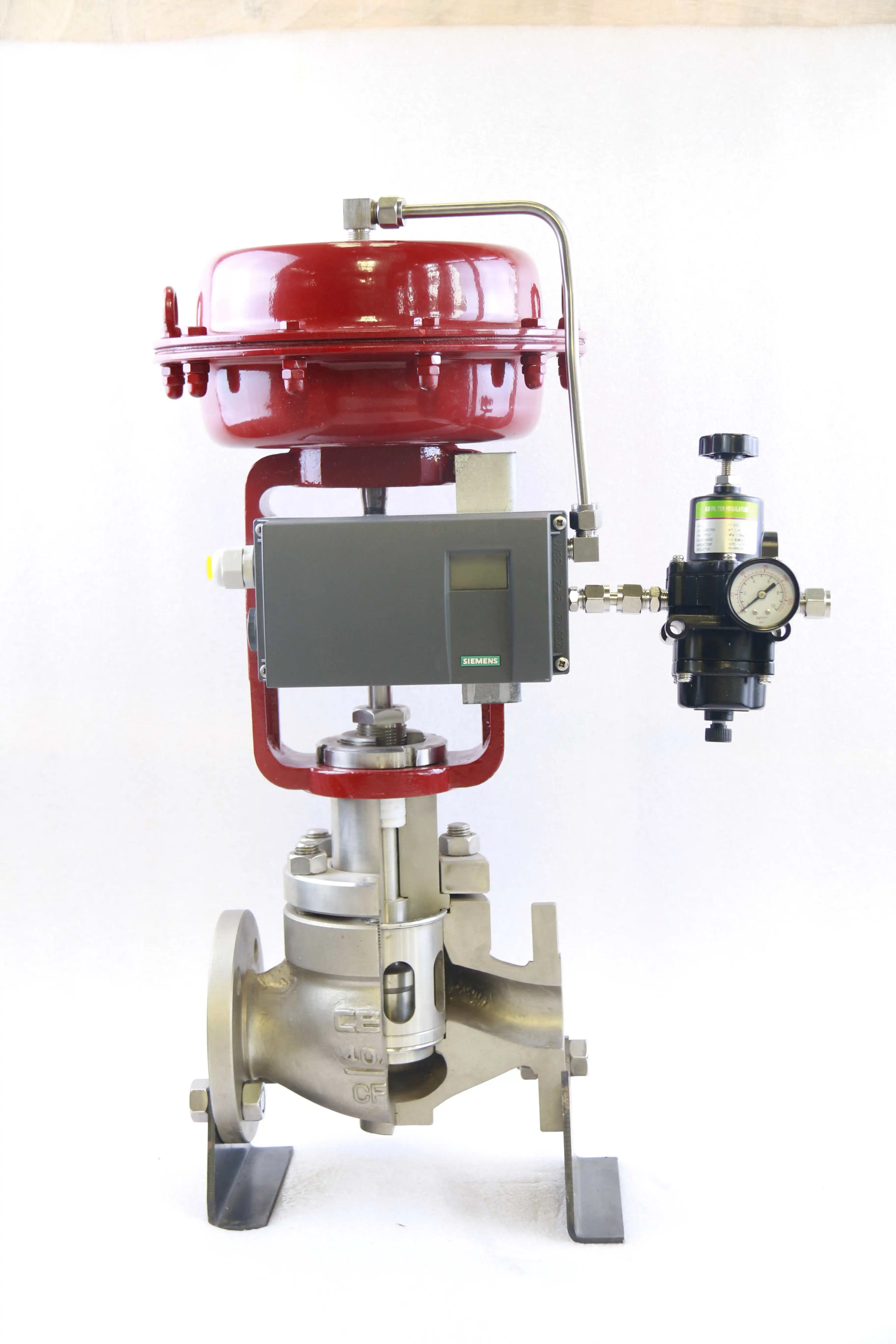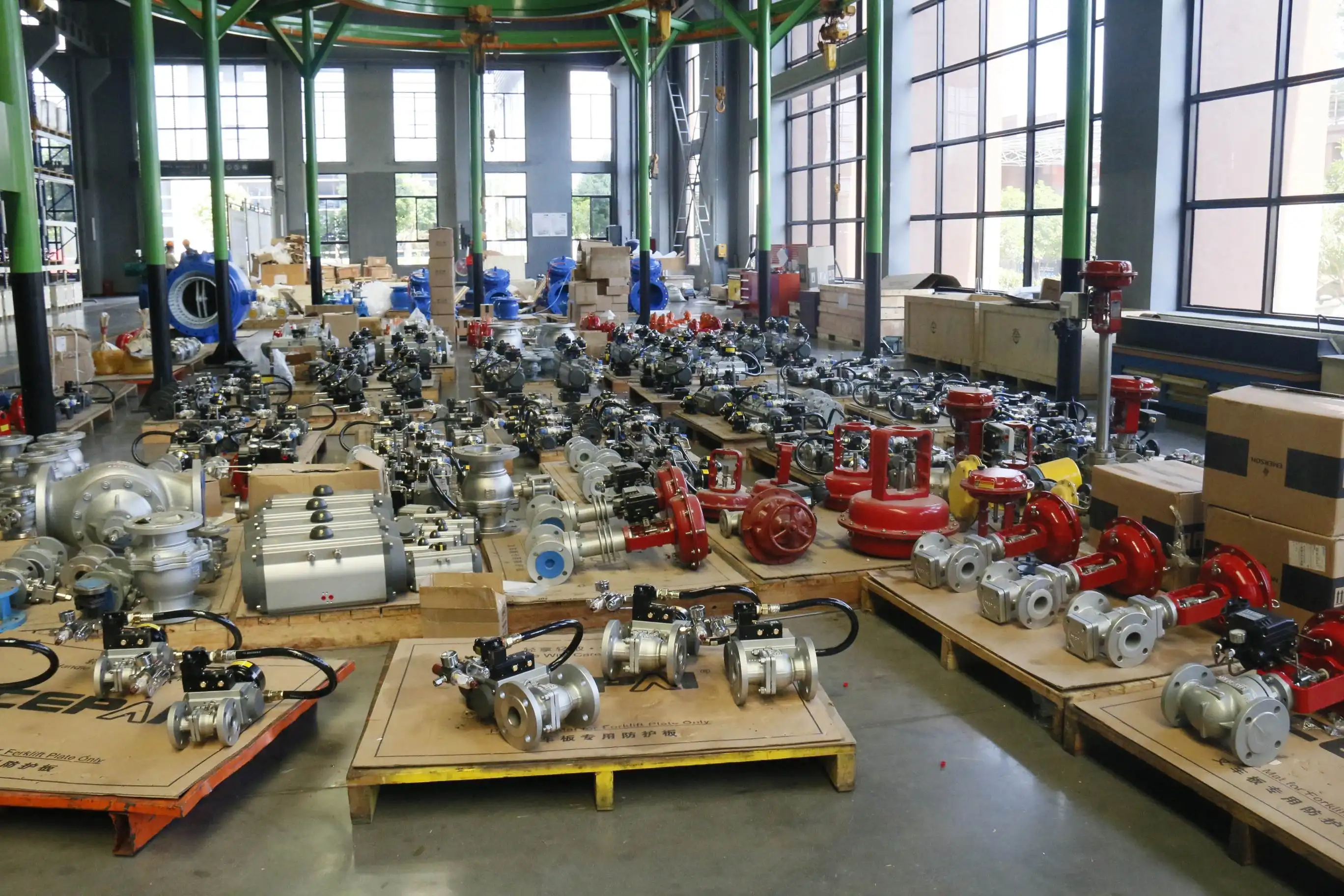When it comes to the production and distribution of food and drink, pneumatic control valves, such as the Pneumatic Control Valve Food Beverage, are indispensable. They provide exact flow management and uphold rigorous sanitary requirements. Reliably managing pressure management and automating operations from ingredient mixing to packing, these industrial valves are constructed with hygienic materials such as stainless steel. To keep food safe and make batch processing easier, they are compatible with CIP (Clean-in-Place) systems and have a leak-proof construction. By delving into the many uses of pneumatic control valves in this sector, one can see how they facilitate regulatory compliance while meeting the rigorous standards of food and drink processing.
Automated Flow Regulation for Consistent Product Quality
Accurate and constant flow rates are crucial in the food and beverage industry for achieving product consistency and meeting high quality requirements. When it comes to mixing, blending, and processing, pneumatic control valves like the Pneumatic Control Valve Food Beverage—which are equipped with sophisticated valve positioners—make all the difference when it comes to precisely regulating fluid dynamics and dose management. Each batch is precisely manufactured to order with this degree of automation, which has a direct impact on the product's flavor, consistency, and quality in general by reducing room for human mistake and increasing repeatability. These valves are essential in sterile dairy production lines for the exact timing of milk, flavorings, and additions, which protects hygiene and ensures compliance with regulations. Automated flow control is used to standardize production output in many different industries, including breweries, juice processing, confectionery, and dairy. Manufacturers may obtain better process stability, consistent product qualities, and increased efficiency by integrating these valves into contemporary control systems. This helps with dependable operations and meets customer expectations for safety and quality.

Sanitary Design Supporting Rigid Food Safety Protocols
Sanitary design is important in the food and drink business to keep products safe and meet strict cleanliness standards. Pneumatic control valves, like the Pneumatic Control Valve Food Beverage, are made of stainless steel and have smooth, polished innards that keep things clean and stop microbes and biofilm from building up. Their design makes sure that they work with cleanliness certifications like 3-A or EHEDG. This means that Clean-in-Place (CIP) processes can be done effectively without having to take things apart, which saves time and money. These valves are made to not leak, not rust, and to be able to handle the changes in temperature that happen a lot when preparing cheese and drinks. These features are especially helpful for breweries, juice bottling plants, and dairy plants because they help keep things clean, protect the quality of the products, and make tools last longer. Pneumatic control valves help makers make sure they meet strict food safety rules and keep contamination to a minimum throughout the processing line. They do this by mixing long-lasting materials with clean design principles.
Pressure Control Enhancing Process Stability and Safety
Handle security, item misfortune, and framework disappointments may all be anticipated with proficient weight administration in capacity tanks and channels. To minimize vacillations that might influence carbonation levels in refreshments, maturation consistency in breweries, or filling precision in bottling lines, pneumatic actuators associated with control circles give speedy responses to weight varieties. By lessening the threats of high-pressure operations and keeping prepare conditions reliable, Pneumatic Control Valve Food Beverage help secure delicate hardware and workers. These valves moreover make it simple to switch between bunch cycles, which implies less downtime and more productive generation all the time. Plants can maximize throughput whereas keeping up consistent item quality since to their exact balance capability. Pneumatic control valves move forward operational solidness and security by permitting for quick-response computerization and reliable weight administration. This way, fundamental operations may be controlled viably without gambling plant astuteness or administrative compliance.
Temperature Management in Thermal Processing Applications
Food and drink thermal processing, like cooking, steaming, and cleaning, depends on being able to precisely control temperature. By changing the flow of steam, hot water, or other heating media to thermal units, the pneumatic control valve for food and beverages plays a key role in making sure that goods hit the exact temperatures needed to kill pathogens while keeping their taste, texture, and nutritional value. Sterilizing bottles, cans, and wrapping lines without damaging or contaminating them requires keeping temperatures stable in the beverage preparation industry. Pneumatic valves are respected for their quick responses and ability to withstand repeated changes in temperature, including running reliably in high temperatures that don't let up. Automatic control loops that include these valves make processes more stable, save energy, and make sure products are safe. Due to their exact modulation and strong construction, pneumatic control valves are necessary for thermal processing uses to maintain quality.
Integration with Advanced Process Automation Systems
The Pneumatic Control Valve Food Beverage is designed to work seamlessly with smart production systems and current Industry 4.0 automation platforms. Featuring state-of-the-art valve positioners and sensors connected to the internet of things, these valves can automatically adapt to keep process conditions ideal by providing real-time data on pressure, flow rates, and valve position. This connection boosts efficiency by facilitating traceability via comprehensive data logging of valve actuation and system status and by guaranteeing exact control across the whole production chain. When operators can remotely monitor valve performance, they may spot possible faults before they create unexpected downtime, which is very helpful for beverage makers. This is known as enhanced predictive maintenance. Plants improve operational visibility, response to process changes, and energy efficiency by linking pneumatic valves to modern control systems. Pneumatic control valves are an essential part of intelligent automation methods because they allow for continual process improvement, dependable product quality, and efficient operation.
Customization to Fit Unique Operational Requirements
Customized pneumatic control valves are an excellent solution for the specific process issues faced by food and beverage operations. Valve size according to flow coefficients, material compatibility with aggressive or corrosive media, and the choice between diaphragm and butterfly valves to manage thick fluids, slurries, and particle suspensions are all examples of customization options. Personalized solutions like this improve process efficiency by maximizing flow management while decreasing wear. To guarantee that every valve works as expected in its designated application, CEPAI Group Co., LTD. provides clients with thorough services like as installation instructions, system troubleshooting, and on-site operator training. These tailored solutions reduce operational risks, keep product quality constant, and boost productivity by meeting the specific demands of each assembly line. Pneumatic control valves that are custom-made help factories achieve their high standards while cutting expenses and increasing productivity.

Ensuring Sustainability Through Leak-Free Performance
In today's food and drink production, where compliance with environmental regulations and operational efficiency are paramount, Pneumatic Control Valve Food Beverage is an important area of concentration. Under high-pressure or continuous-operational situations, pneumatic control valves with diaphragm structure and modern sealing technologies guarantee leak-free performance. By avoiding fluid loss, these valves aid to preserve precious ingredients and resources while simultaneously lowering the possibility of contamination, thereby lending credence to rigorous food safety regulations. By keeping system pressures consistent and minimizing needless pump cycles, leak-free operation also helps with energy efficiency. Businesses that buy these dependable valves show their stakeholders, regulators, and customers that they care about the environment and manage their resources responsibly. Consistent, foolproof performance also aids in meeting the ever-tightening environmental laws and bolsters company objectives to lessen their environmental effect. Pneumatic control valves that are long-lasting, accurate, and leak-proof allow businesses to fulfill product quality and sustainability goals simultaneously.
Conclusion
In the production and delivery of food and drink, Pneumatic Control Valve Food Beverage plays an important role. Their adaptability is highlighted by their exact flow regulation, strong accordance with hygiene regulations, good management of pressure and temperature, and easy interface with automation systems. Functionality that is both adaptable and impervious to water further improves operational excellence and longevity. Businesses may gain an edge and the trust of consumers by prioritizing the use of high-quality valves from CEPAI Group Co., LTD. This prioritizes safe operations, consistent product quality, and compliance with regulations.
Where to Buy Pneumatic Control Valve Food Beverage?
CEPAI Group Co., LTD. stands as a trusted provider of high-performance Pneumatic Control Valve Food Beverage tailored for the food and beverage sector. We deliver exceptional durability, precise control, and comprehensive technical support—from pre-sales consultation to after-sales maintenance. Partner with us to experience innovative solutions that align perfectly with your operational needs. Reach out and send an inquiry by contacting us at cepai@cepai.com. For details, please refer to the website: valveblog.jscepai.com.
References
1. Smith, J., & Brown, L. (2022). Advanced Valve Technologies in Food Processing. Journal of Industrial Automation.
2. Lee, K. (2021). Hygienic Valve Design Principles for Beverage Production. Food Safety and Engineering Review.
3. Garcia, M. et al. (2023). Process Automation Impact on Dairy Manufacturing Efficiency. Global Food Processing Insights.
4. Patel, A. (2020). Pressure and Temperature Control in Thermal Food Processing. International Journal of Food Engineering.
5. Johnson, R., & Xu, Y. (2023). Applications of Pneumatic Valves in Sustainable Beverage Manufacturing. Journal of Sustainable Manufacturing.
6. Anderson, T. (2021). Integration of Smart Valves in Industry 4.0 Food Plants. Automation Today.
_1745994800896.webp)



